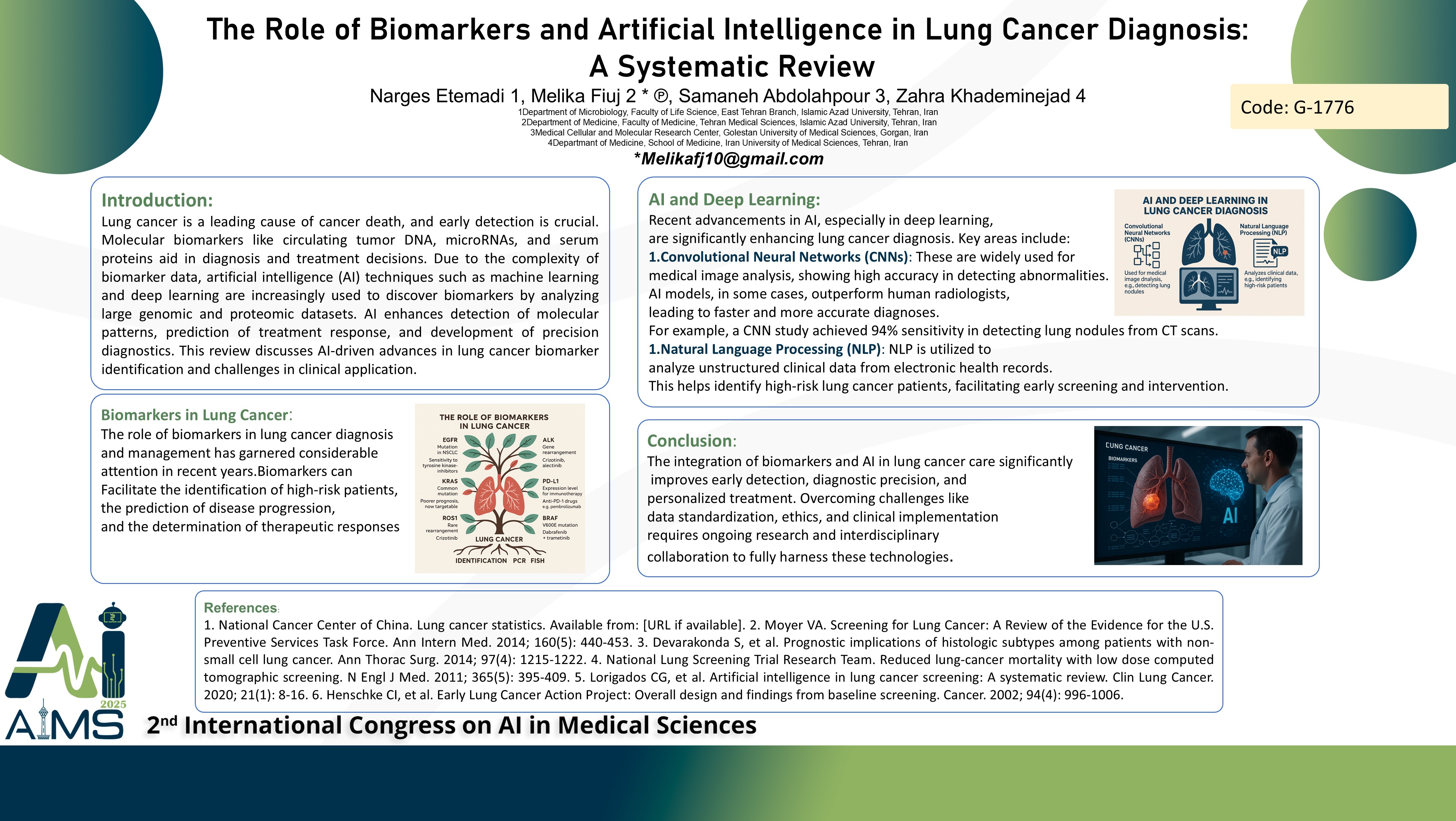The Role of Biomarkers and Artificial Intelligence in Lung Cancer Diagnosis: A Systematic Review
Code: G-1776
Authors: Narges Etemadi, Melika Fiuj * ℗, Samaneh Abdolahpour, Zahra Khademinejad
Schedule: Not Scheduled!
Tag: Cancer Diagnosis & Treatment
Download: Download Poster
Abstract:
Abstract
Lung cancer remains the leading cause of cancer-related mortality worldwide, emphasizing the urgent need for earlier and more accurate diagnostic strategies. While traditional screening approaches offer utility, they are often hindered by limited sensitivity, subjective interpretation, and delays in detection—especially in asymptomatic individuals. This systematic review explores the transformative convergence of biomarkers and artificial intelligence (AI) in redefining the landscape of lung cancer diagnosis and precision care. Biomarkers such as circulating tumor DNA (ctDNA), microRNAs, and serum proteins like CEA and CYFRA21-1 have become indispensable tools for early detection, prognostication, and guiding therapy. Their integration into clinical workflows enables non-invasive, real-time monitoring of tumor dynamics, improving both diagnostic precision and treatment response evaluation. Beyond image analysis and decision support, AI is increasingly contributing to the discovery of novel lung cancer biomarkers. Advanced machine learning and deep learning models can analyze vast and complex multi-omics datasets—including genomic, transcriptomic, and proteomic data—to identify previously unknown molecular patterns associated with tumor presence and progression. These algorithms uncover hidden correlations, enabling the identification of predictive and prognostic biomarkers that might remain elusive through conventional statistical methods. Moreover, AI facilitates the stratification of biomarkers for different lung cancer subtypes, supporting the development of more personalized and targeted therapeutic approaches. In conclusion, the fusion of AI and biomarker science marks a paradigm shift in lung cancer diagnostics. This interdisciplinary frontier promises earlier detection, individualized treatment pathways, and a new standard for patient-centered care. Continued collaboration among clinicians, researchers, and technologists is essential to overcoming current limitations and realizing the full potential of these innovations in real-world oncology.
Keywords
Lung Cancer, Biomarker, AI
